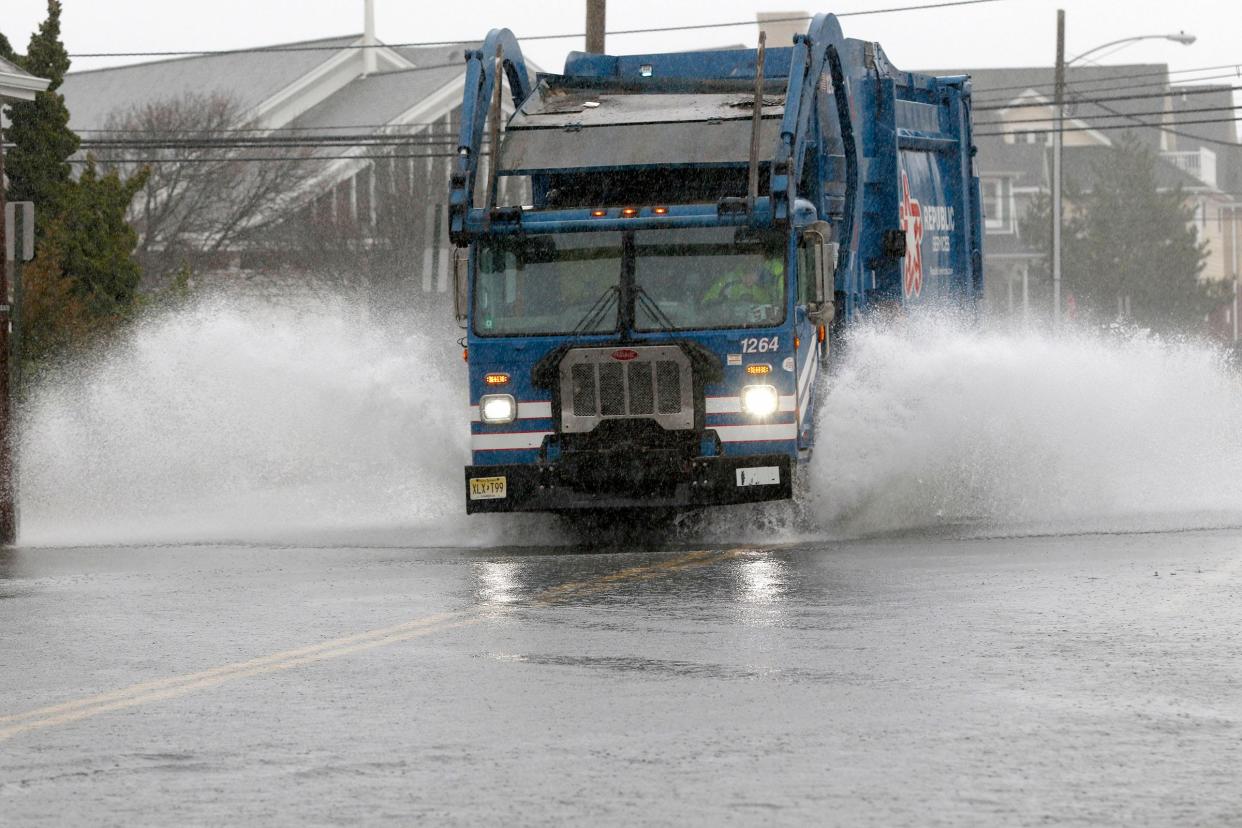Looking to buy or rent in NJ? Sellers and landlords now required to disclose flooding risks

Looking to buy or rent in New Jersey? Beginning on March 20, 2024, sellers and landlords will be required to fill out new disclosures addressing the property’s potential flooding risks. Buyers and renters can also do their own research with an interactive website by the state Department of Environmental Protection.
The new section of the seller disclosure form states: “Flood risks in New Jersey are growing due to the effects of climate change. Coastal and inland areas may experience significant flooding now and in the near future, including in places that were not previously known to flood.”
It states that rising sea levels and an increase of heavy rainfalls are causing more properties to be at risk of flooding.
COVID-19: New Jersey's population increases, first time since pandemic began
It says more than 40,000 properties in the state are at risk of permanent coastal flooding by 2050 as sea levels are likely to “meet or exceed 2.1 feet about 2000 levels.”
Heavy rain falls are also increasing at “levels significantly above historic trends, placing inland properties at greater risk of flash flooding.”
Because these factors are expected to increase over the years, sellers are now required to disclose if the property is located within a Federal Emergency Management Area (FEMA) Flood Hazard Zone Area.
Properties within a Special Flood Hazard Area, also known as the 100-year floodplain, have a 1% annual chance of flood hazard. And properties within a Moderate Risk Flood Hazard Area, also known as the 500-year floodplain, have a 0.2% annual chance of flood hazard.
Sellers are also expected to disclose if the property has experienced flooding and if it requires flood insurance, among other questions.
31 Days of Kindness: 9-year-old boy delivers gloves to cold hands in Asbury Park. It's a way to heal his heart.
Buyers and renters can also search the property by typing in its address into an interactive website. The New Jersey Flood Risk Notification Tool color codes the various flood hazard zones indicating whether the property has a 1% or 0.2% annual chance of flood hazard. It also notes future chances of flooding.
Landlords will also be expected to notify tenants signing or renewing leases of whether the building is located in a Special Flood Hazard Area or a Moderate Risk Flood Hazard Area. Certain landlords are exempt from disclosure including buildings with less than two units, owner-occupied premises with less than three units, hotels, motels and guest houses that serve transient or seasonal guests.
“As we continue to live with the impacts of climate change in our communities, it’s essential that we inform prospective homebuyers and renters of the risks in areas where they are looking to settle down,” Governor Murphy said in a press release. “These new protections will enable prospective home buyers and renters to stay a step ahead when it comes to finding the safest residence possible for themselves and their families.”
Further information about sea-level projections of 3 ft, which could occur by 2070, and 5 ft, which could occur by 2100, can be found on the state’s Department of Environmental Protection website.
Olivia Liu is a reporter covering transportation, Red Bank and western Monmouth County. She can be reached at oliu@gannett.com.
This article originally appeared on Asbury Park Press: NJ property owners required to disclose flooding risks due to climate change

